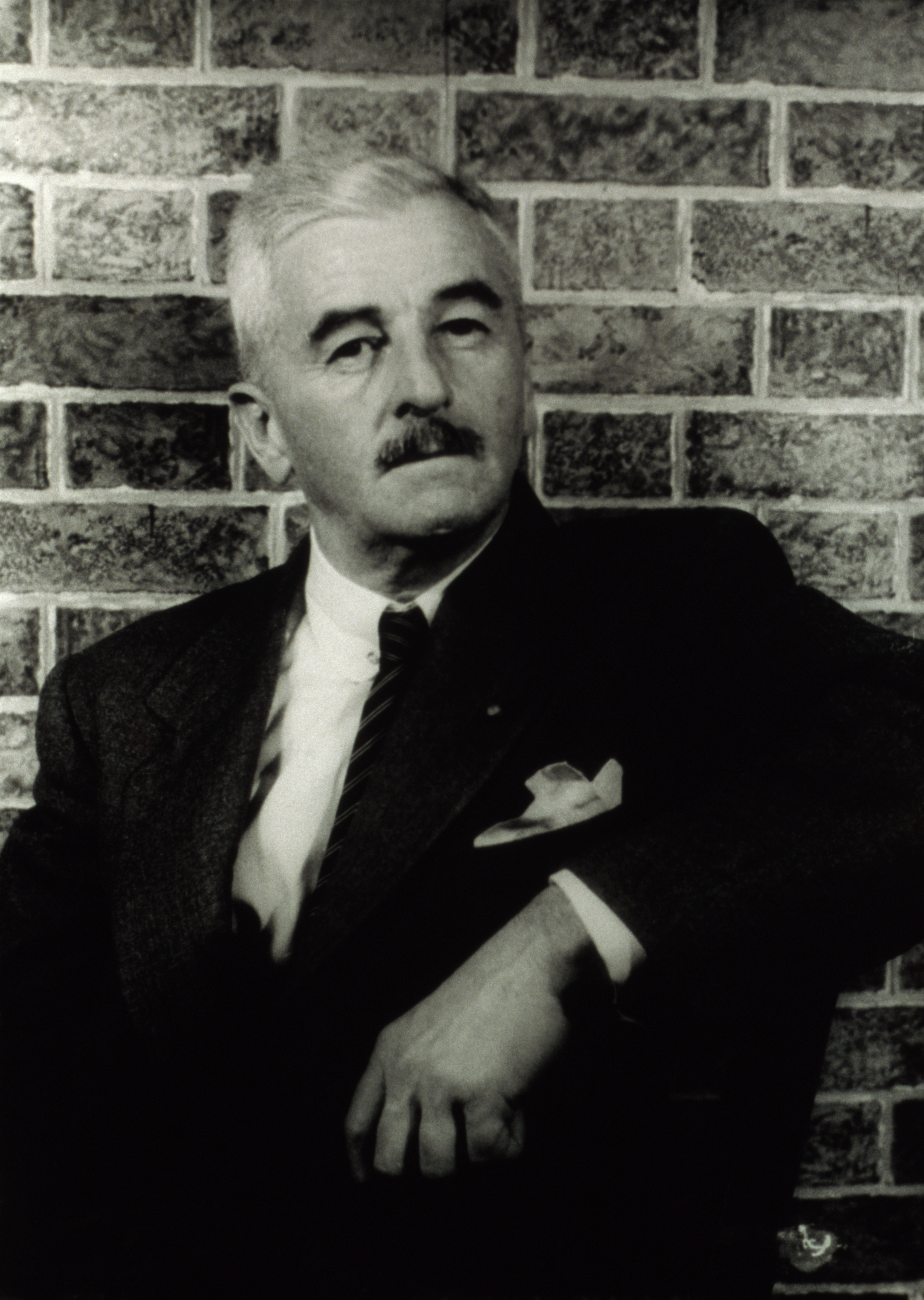Charles Mallinson in Ch. 9
The Mansion (1959)
William Faulkner Quotes
Act 2, sc. 1 http://books.google.com/books?id=EBMFAQAAIAAJ&q=%22Maybe+the+only+thing+worse+than+having+to+give+gratitude+constantly%22+%22is+having+to+accept+it%22&pg=PA155#v=onepage
Requiem for a Nun (1951)
“…girls, women, are not interested in romance but only facts.”
Gavin Stevens to Eula Varner Snopes in Ch. 20
The Town (1957)
Last paragraph, Act 3, The Jail (Nor even yet quite relinquish —)
Requiem for a Nun (1951)
Gavin Stevens to V. K. Ratliff in Ch. 24
The Town (1957)
“…life is not so much motion as an inventless repetition of motion.”
Charles Mallinson in Ch. 8
The Mansion (1959)
Charles Mallinson in Ch. 19; Charles Mallinson's mother, Maggie, and his uncle, Gavin Stevens, besides being their parents' only children, are twins.
The Town (1957)
Charles Mallinson in Ch. 9. The date is summer 1938.
The Mansion (1959)
Paris Review interview (1958)
Nobel Prize acceptance speech (1950)
Nobel Prize acceptance speech (1950)
The opening sentence of the novel, Ch. 1
Intruder in the Dust (1948)
Delta Autumn (p. 347)
Go Down, Moses (1942)
The Bear section 4 (p. 247)
Go Down, Moses (1942)
The Bear section 3 (p. 229)
Go Down, Moses (1942)
The Bear section 1 (p. 195)
Go Down, Moses (1942)
The Judge to Robert G. Ingersoll
"Beyond" (1933)
Judge to Mothershed, a suicide
"Beyond" (1933)
Source: Light in August (1932), Chapter 2
As I Lay Dying (1930)
“Once a bitch always a bitch, what I say.”
The Sound and the Fury (1929)
Letter to Malcolm Cowley (11 February 1949), quoted in William Faulkner : A Critical Essay (1970) by Martin Jarrett-Kerr, p. 46; also published in Selected Letters of William Faulkner (1978) by Joseph Blotner, p. 286
An answer to a student's question as to why he writes in long sentences during his Writer-in-Residence time at the University of Virginia in 1957-1958. Faulkner in the University, p. 84
Faulkner in the University (1959)
he cried. “Dont you see? This whole land, the whole South, is cursed, and all of us who derive from it, whom it ever suckled, white and black both, lie under the curse? Granted that my people brought the curse onto the land: maybe for that reason their descendants alone can—not resist it, not combat it—maybe just endure and outlast it until the curse is lifted. Then your peoples’ turn will come because we have forfeited ours. But not now. Not yet. Dont you see?”
The Bear section 4 (p. 266)
Go Down, Moses (1942)
The Bear section 2 (p. 212)
Go Down, Moses (1942)
Charlotte Rittenmeyer to Harry Wilbourne, in (Ch. 7) "Wild Palms"; p. 218
The Wild Palms [If I Forget Thee, Jerusalem] (1939)
Harry Wilbourne to Charlotte Rittenmeyer, in (Ch. 3) "Wild Palms"; p. 48
The Wild Palms [If I Forget Thee, Jerusalem] (1939)
“Now I want you to tell me just one thing more. Why do you hate the South?”
"I dont hate it," Quentin said, quickly, at once, immediately; "I dont hate it," he said. I dont hate it he thought, panting in the cold air, the iron New England dark: I dont. I dont! I dont hate it! I dont hate it!
last lines (Chapter 9)
Absalom, Absalom! (1936)
Gail Hightower's thoughts in Chapter 20
Light in August (1932)
Source: Light in August (1932), Chapter 4
As I Lay Dying (1930)
As I Lay Dying (1930)
Jason to Caddy
The Sound and the Fury (1929)
“Why that’s a hundred miles away. That’s a long way to go just to eat.”
On declining invitation to White House dinner honoring Nobel laureates, as quoted in Life magazine (20 January 1962)
"The Bear” in The Saturday Evening Post (9 May 1942)
Source: As quoted in National Observer (3 February 1964)
Miracle, pure miracle anyhow, how little a man needs to outlast jest [just] about anything.
V. K. Ratliff about Gavin Stevens in Ch. 6
The Mansion (1959)
“You don't know very much about women, do you?”
she said. "Women aren't interested in poets' dreams. They are interested in facts. It doesn't even matter whether the facts are true or not, as long as they match the other facts without leaving a rough seam."
Eula Varner Snopes to Gavin Stevens in Ch. 15
The Town (1957)
